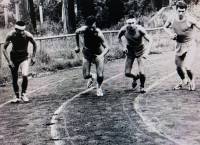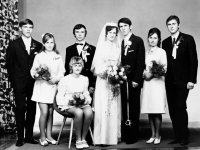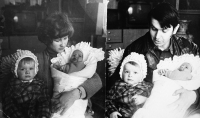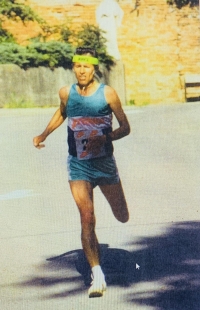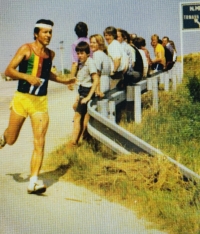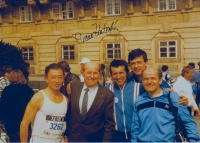I’ve been running for 70 years. I can’t help it, I have to!
Download image
Květoslav Hána was born on 11 April 1937 in Svatobořice. His father had a confectionery shop, his mother was a housewife. During the war, the Germans lived with the family for three days, and towards the end of the war, Red Army soldiers. The family got along well with the soldiers of both armies, there were no incidents. Around 1947, the then President Edvard Beneš passed through the village and the witness saw him with his own eyes. In 1948 the family’s confectionery shop was expropriated by the Communists, and his father went to work for Elektrosvit. Květoslav Hána had been running since he was young, and in the 1950s he started running competitively at the apprenticeship in Gottwaldov (Zlín), and that is how he met Emil Zátopek. Together they sometimes trained and ran some races. Květoslav Hána also ran in the army in Psary near Prague, where he was from 1957 to 1959. He also continued running in Veselí nad Moravou, where he worked all his life at the railway and where, thanks to his contacts from the war, he took his coach and runner Jaroslav Štrupp in 1960. Thanks to the friendliness of the bank director in Hodonín, who supported him, he always received a foreign currency pledge and could go to races in “capitalist foreign countries”, even though he was not a member of the Communist Party. He did not stop running even after the fall of the communist regime in 1989, which he welcomed because his wife Marta could finally accompany him to races abroad. Květoslav Hána took part in the World Veterans Championships in Buffalo in 1995 and in Melbourne in 2002, as well as many other domestic and foreign races, from which he collected numerous awards. He is married with two daughters and in 2023 he was living in Veselí nad Moravou and still running almost daily even at his venerable age.

